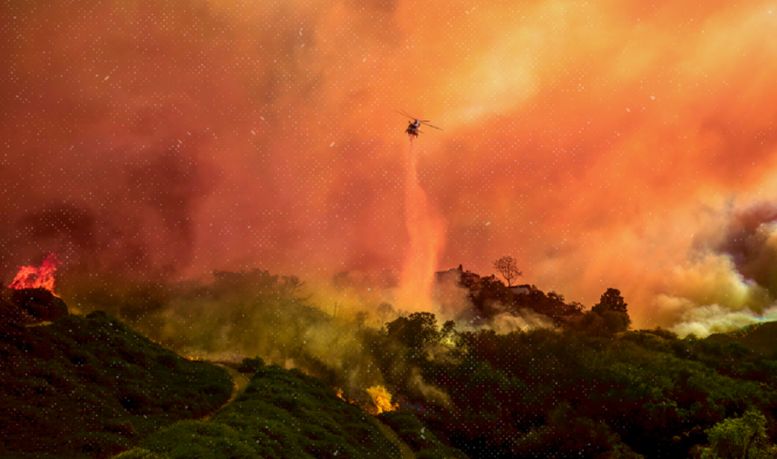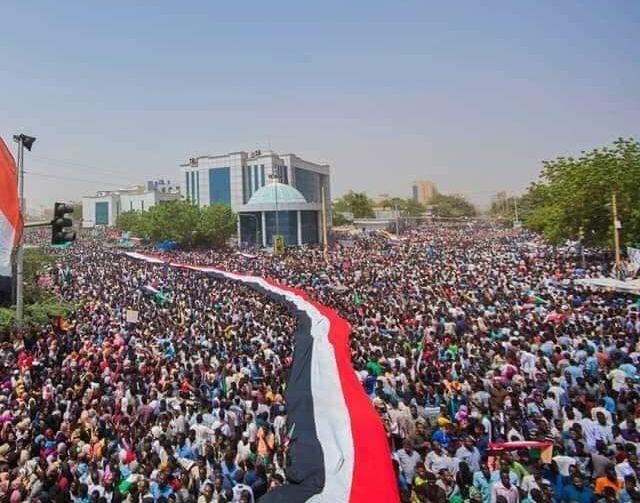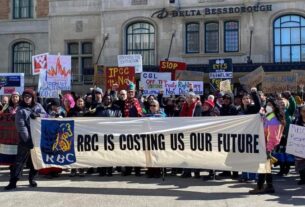No Disaster Profiteering — Force Big Business to Rebuild Los Angeles
A historic windstorm ignited several wildfires in Los Angeles last week, encompassing over 40,000 acres — nearly triple the size of Manhattan. At least 25 have died, and thousands lost their homes to unprecedented fires, even in a region that has grown accustomed to wildfires as the effects of climate change intensify.
The Santa Ana winds are a frequent weather event, but this year, a massive wind crashed on LA in a phenomenon known as a “mountain wave.” Santa Ana winds rarely occur in January; these are the strongest winds LA has seen in over 10 years. On top of a severe lack of rainfall, gusts dried up the air and vegetation, creating catastrophic wildfire conditions.
This changing climate led directly to the destruction we’re witnessing now. Firefighters have made heroic efforts to contain the blaze, but the wind made early containment nearly impossible.
Budget Cuts Endangered City Residents
One of the fire department’s critical duties is brush clearance for fire prevention, so it enraged Angelenos to learn that LA Mayor Karen Bass recently hamstrung the Los Angeles Fire Department’s brush clearance efforts. In June, Bass and City Council imposed budget cuts on firefighters and other critical departments to fund limp police recruitment. The $17.6 million LAFD cut eliminated positions and overtime pay for the Fire Prevention Bureau, impacting the inspection of brush clearance around city structures.
Last month, LAFD Chief Kristin Crowley reported to City Council that the cuts created an “inability to complete required brush clearance inspections, which are crucial for mitigating fire risks in high-hazard areas.” When Bass said last week that LAFD budget cuts didn’t affect the current wildfire response, Crowley broke ranks: “My message is the fire department needs to be properly funded. It’s not.”
Cuts to firefighting make local governments turn to prison labor. Roughly 900 imprisoned firefighters were deployed to LA, receiving essentially $2/hour to clear vegetation, dig firebreaks, and other grueling labor critical for fire containment. In a state government run by “progressive” Democrats, critical infrastructure remains built on legalized slavery, justified by the very party whose mismanagement led to these fires.
Both Republicans and Democrats have a history of cutting social services and endangering the public. The fragile, privatized power grid in Texas failed during a historic winter storm in 2021 and killed dozens. In both cases, capitalism’s needs carved deep cuts to critical infrastructure with disastrous consequences. Whether a Democrat or a Republican did the cutting will make little difference to the dead or bereaved in future disasters.
Insurers Leave Residents Twisting in the Wind
Roughly 12,000 structures have been destroyed, per official estimates. Over half were in the small, historically Black neighborhood of Altadena. Until last week, Altadena was home to many Black and Latino working families with a high rate of homeownership. For thousands of workers, years of memories, labor, and financial diligence burned away in minutes.
J.P. Morgan analysts estimate total insured losses from the fire will exceed $20 billion. Actual costs could be much larger. If those estimates are correct, the current fires will be the costliest disaster in state history, though Elon Musk could cover that cost right now if he donated a nickel for every dollar he has.
But who will pay for it?
Insurers refuse to. Only months ago, State Farm canceled fire coverage for 1,600 homeowners in Pacific Palisades while spiking rates elsewhere. Of 2.8 million homeowner policies ended in 2022–2024, most were canceled by insurers. Insurance companies reported losses after paying out claims for the back-to-back historic California wildfire seasons of 2017 and 2018, so they’re taking steps to never be in that position again.
State politicians instituted a privately run state insurance program—the FAIR plan—to bridge the coverage gap by forcing California insurers to pay in and share risk. But policies are expensive. Many working-class homeowners have opted out of insurance altogether, leaving them devastated. State politicians have promised to waive the $3 million cap on homes covered by FAIR, mostly benefiting wealthy owners who can afford high premiums. They’ll recoup their investments, but working people who’ve lived in the Palisades or Altadena for decades likely can’t afford the exorbitant insurance to keep living there.
Moreover, Governor Newsom recently rewrote the rules to force insurers into providing policies in fire-risk areas. But the situation is more fundamentally dire: the insurance profit model is simply not able to account for mass catastrophic losses that occur semi-frequently under climate change without an absurd increase in premiums.
Insurers aren’t canceling coverage out of superstition; they utilize bottomless resources for calculating risk. Risk assessments State Farm used to justify canceling coverage could have been used to direct brush clearance efforts in advance or relocate households. Instead, insurers guard these assessments as lucrative trade secrets.
The Looters in Patagonia Vests
When 150,000 people remained displaced as fires spread, the market had already started capitalizing on staggering pain and loss. When residents from Altadena and Pacific Palisades looked for short-term rental housing, rent prices spiked by 10%–20% or higher.
California law makes rental price gouging illegal under a state of emergency. But to capitalists, this is free market 101. Capitalists routinely raise prices or privatize social services in the face of increased demand—which, in this case, means preying on the desperation of disaster victims.
The market “solution” for underfunded fire departments looks like a billionaire property developer paying for private firefighters to protect a high-end shopping center while homes burn to the ground. As disasters worsen, the super-rich will spend big on emergency responders to protect their assets while demanding deeper cuts to social services. This increases the cost of emergency response for everyone else.
If previous disasters are any indication, property developers will start trying to buy up the smoking ruins of Altadena and elsewhere. Residents in Altadena have reportedly started getting offers to buy the land where their homes once stood, even though many remain under evacuation orders. To a worker, the loss of a home is a tragedy. To a capitalist, it’s a juicy opportunity.
It’s inevitable that the neighborhoods like Altadena will not be identical to their old selves. They will need to be rebuilt. But who leads the rebuilding process, and who benefits from the restoration? If workers want to rebuild Altadena into a thriving working-class community once again, they’ll need to fight for control from the finance firms, banks, and capitalist politicians who will try to reshape it into a safe haven for capital investment—and little else.
LA Needs Working-Class Disaster Recovery
Some businesses voluntarily became temporary social services to meet dire social needs. Planet Fitness and UFC Gym locations offer displaced residents and first responders free showers, power outlets, and WiFi. Airbnb is offering free or discounted housing for one week to displaced residents. Fifty LA restaurants offered free meals to evacuees and first responders until they ran out. GoodRx offers free telehealth appointments for emergency access to prescription medications. Verizon offers free WiFi and charging stations at evacuation shelters, with free data and calls in Southern California until January 18.
These helpful gestures are limited by the bosses directing them from above. Workers are carrying out these efforts, but they must lead them instead. For disaster aid to solve this crisis, unions must organize critical service workers. Unions in major hotel chains could provide shelter to displaced residents, and unions in grocery stores and restaurants could provide free meals until workers decide the crisis is over. They could direct businesses to offer social services beyond a few owners’ spontaneous and short-lived generosity.
Workers, unions, and social justice movements need a mass organization to ensure disaster relief benefits workers, not property developers. The Democratic Party belongs to billionaires and their interests; for meaningful action that benefits people devastated by this climate change-fueled disaster, we need a working-class party. Such a party needs to end fossil fuel use for good before disasters worsen and fight for an entirely new system that puts our lives and the planet over profit.
Socialist Alternative says:
- Bail out single-home owners — not billionaires and corporations!
- Unions must organize workplaces providing critical services to manage disaster relief.
- Fast, full claim payouts! California politicians must seize insurance company profits through the FAIR plan to pay out all wildfire claims with zero delays and use their risk assessments for public safety and disaster preparation.
- Tax billionaires and corporations — not cost-burdened working-class homeowners — to fully fund the fire department with higher wages for all firefighters and expanded training programs to increase staffing.
- Immediate shelter for all! Build a mass movement to force LA City Council to seize vacant rooms and residences owned by billionaires, big developers, and corporate hotels to guarantee housing for all residents.
- Equal pay for equal work — full wages, benefits and pensions for incarcerated firefighters. End all forms of low-paid prison labor and invest in education, healthcare and job training programs for prisoners.
- End for-profit insurance! We need publicly-owned, affordable insurance that guarantees working-class homeowners compensation for their homes, funded by taxing fossil fuel corporations and other companies causing climate change.
- Take the top polluting corporations into democratic public ownership and use funds to scale up green energy and climate disaster mitigation.




